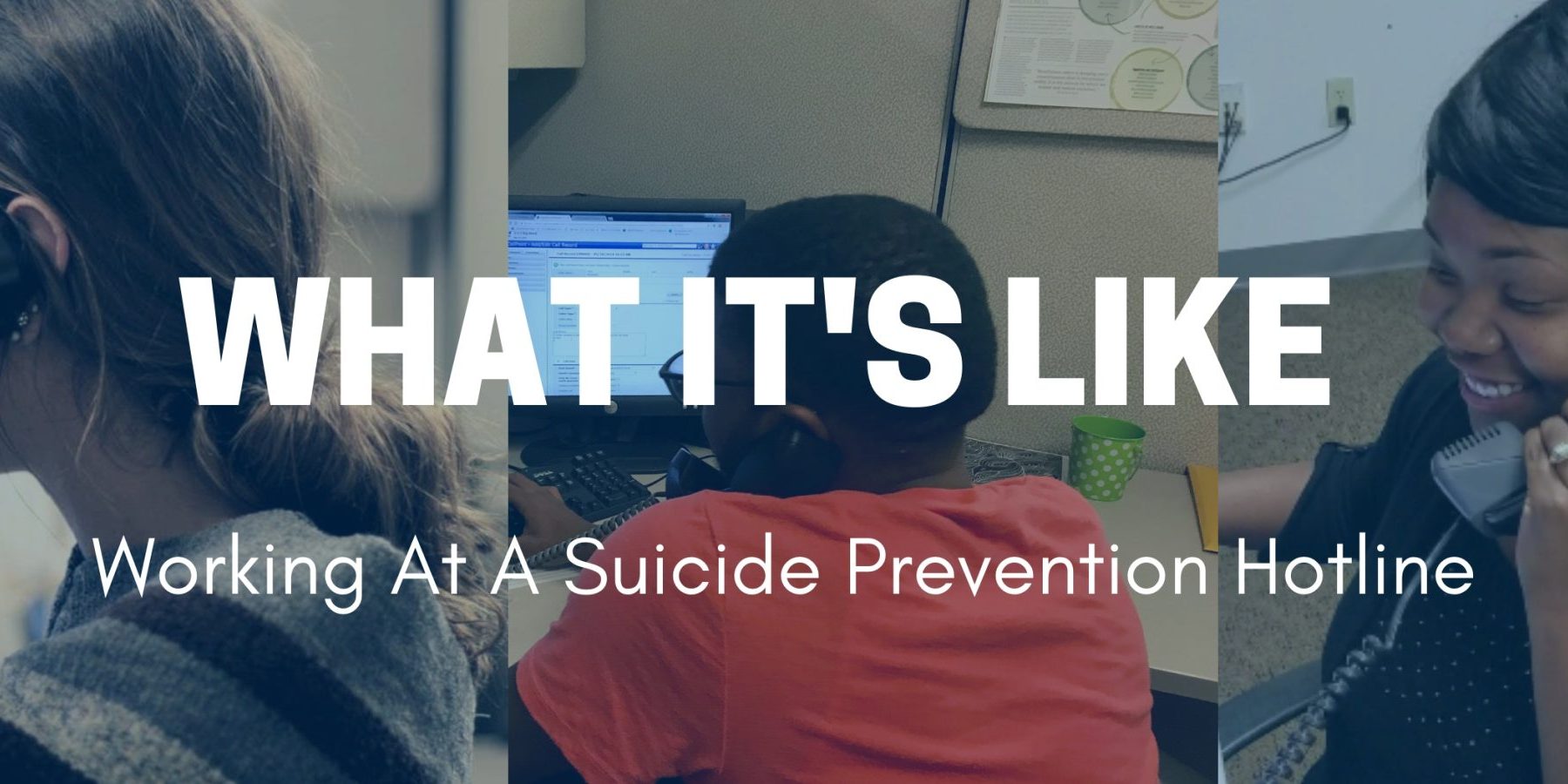This post is presented in collaboration with 211 Big Bend Hotline Counselors, Hotline Supervisors, and ASIST (Applied Suicide Intervention Skills Training) Trainers, devoted to speaking openly about mental health and providing empowerment through hope and help.
I work at a Suicide Prevention Hotline.
Every struggle is different. Every experience is unique. Stories of people like you and how they overcame crisis to find hope and recovery resonate deeply with each hotline counselor.
Available 24/7 for supportive, suicide, and crisis counseling, working at a suicide prevention hotline allows for individual growth like no other experience on earth. As a hotline counselor, I establish my mark of making a difference by contributing my skills to saving a life, and that is powerful. While most people may never step into the phone room of a suicide hotline, hearing the perspectives from those that answer the call in crisis can be enlightening and hopeful.
In addition to the 75 hours of initial phone room training in order to answer suicide prevention calls on Helpline 211 and the National Suicide Prevention Lifeline (Lifeline) for the northwest Florida region, hotline counselors are required to complete the Applied Suicide Intervention Skills Training (ASIST). ASIST gives valuable tools to fully understand the mindset of someone who is considering suicide and focuses heavily on working to ensure that the caller is safe before the call is over.
What Steps Do You Take When Receiving Calls Regarding Suicide?
”I always think it’s important to drop everything from my mind when I see a Lifeline call come in on the phone. I want to make sure I am ready to be attentive to the needs of the caller. After the call starts I stick to the procedure we have in place, but I always make sure to be patient and reassuring with callers.” -Stephen S., Lifeline Hotline Counselor
“Answering suicide calls can be challenging and intense, but extremely rewarding. Finding the right words to say and reacting appropriately to someone expressing these thoughts creates a great amount of pressure, but with the help of the ASIST I feel a sense of relief knowing I am a positive outlet for someone. From my experience, people call the suicide hotline because they ultimately do NOT want to kill themselves. Lifeline callers are looking for someone to hear them, to understand, to empathize, and to give them a safe space to express their thoughts.” -Carlee Myers, Lifeline Hotline Counselor
How Do You Feel After A Call Regarding Suicide?
In one of her first calls over 18 years ago, Carrie T., Director of Hotline Programs, received a Lifeline call from a college student which lasted over two hours. The caller had been considering suicide after struggling to adjust to the stress brought on by college and his family. The call ended positively, and the student was able to receive the help he needed.
“With these calls, I understand that as counselors we aren’t allowed to make decisions for the callers. Thoughts of self harm are a daily occurrence, so I feel proud that I’m able to do enough to keep them alive for at least another day.” -Carrie T., Director of Hotline Programs
Hotline counselors are often speaking with callers at their lowest point, which is why the counselors’ empathy skills are engaged at all times, providing hope, help and a non-judgmental listening ear.
“Feelings vary following a call. Usually, I feel helpful and thankful that I was able to assist the person. Even with a call that has a “good” outcome, I find myself worrying about the caller.” -Katie Kliner, Hotline Supervisor
While the length of Lifeline and Helpline 2-1-1 calls varies tremendously and can last anywhere from a few minutes to a few hours, hotline counselors feel a sense of accomplishment in providing hope to callers in crisis.
Suicide Prevention Awareness
2-1-1 has seen a 47% increase in calls related to suicide in just the last year. Creating a dialogue about suicide prevention and bringing it to the forefront of conversation is crucial. When is the last time you spoke about suicide prevention? Every single human has an amazing story to share and at 2-1-1, our mission is to provide empowerment through hope and help so those stories can be shared for years to come. To anyone struggling with suicidal thoughts, we are here for you.
Call 211 or (850) 617-6333 for our free, confidential hotline services.






